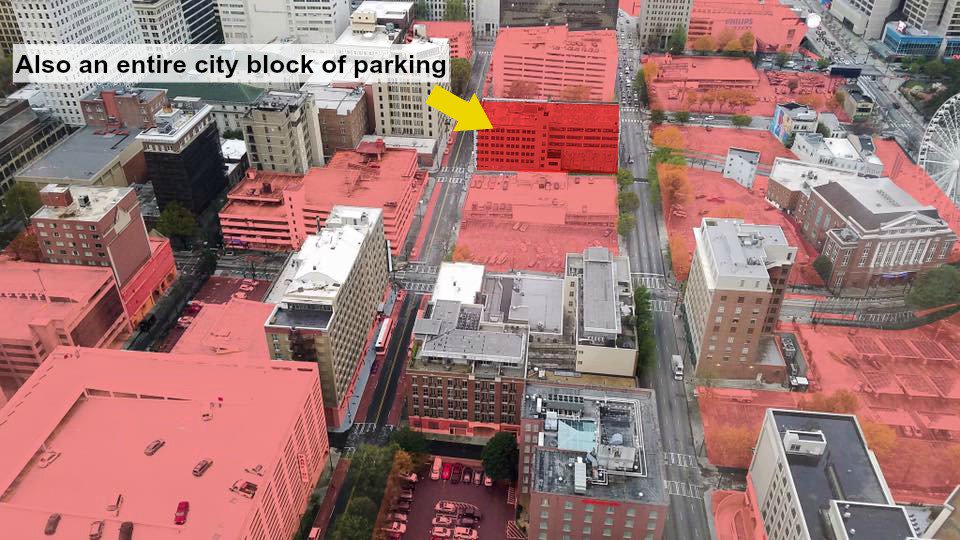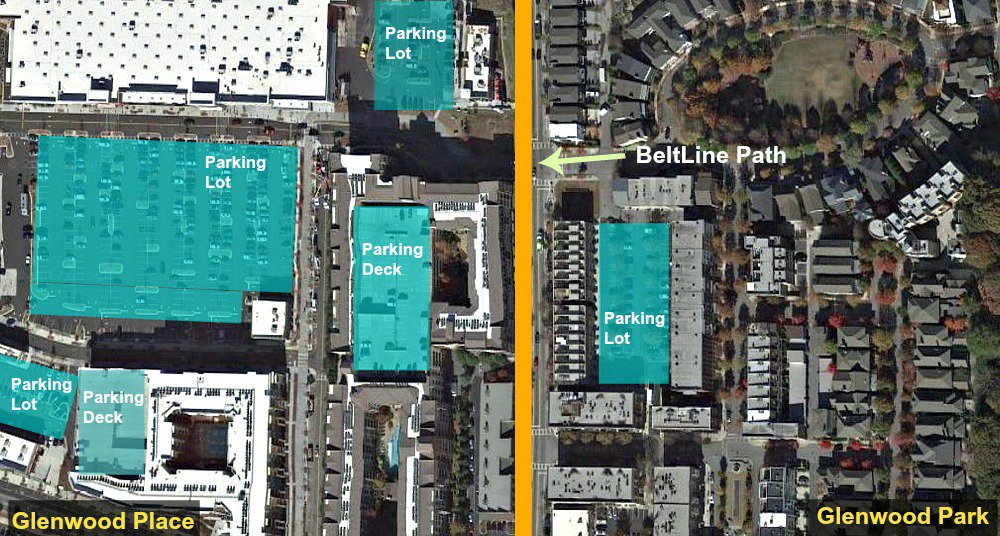| From Atlanta Magazine, a poignant graphic showing free parking taking over the built environment |
The city of Atlanta has parking requirements that each new development must meet. For instance, a new apartment complex has to meet a required minimum of spaces for its residences. And the grocery store built next to it has to meet a required minimum for its customers. And next to the grocery store, the office center has a required minimum of parking for its workers. And then next to the office, a chic restaurant complex has a parking deck for its customers, too.
 |
| From the ATL Urbanists- amount of space dedicated to parking in Downtown Atlanta |
To our ear, where parking is plentiful in suburban America, nothing is wrong with this picture. Each development in our mind should be required to provide parking for its users. But set in an urban landscape, this parking is a big waste of space. Because the apartment complex's parking deck is only full from 9pm-8am, the grocery store parking lot only full from 5pm-7pm, the office parking deck is full from 9am-5pm, and the restaurants from 6pm-9pm. All of these separate places with different uses could share one parking structure because their uses keep them full at separate times. With less space devoted to parking, the built environment can be rebuilt to be more dense and walkable which results in better public health for the city. And with less parking provided and more options of getting around, less people will drive in the first place which alternatively eliminates the need for so much parking.
And now let's focus in on the money because honestly, you don't deserve free parking at the grocery store. Why? Because one typical surface parking lot spot costs $2,000-$4,000 to make. $2,000 is a lot of money to spend on a piece of land that may only be occupied 25% of the time (25% being very generous occupation rate for a surface lot). And a parking deck? One spot in a parking deck costs the developer at least $20,000. Most parking decks are typically around $30,000-$40,000 to build per spot while if it is an underground parking deck, the cost skyrockets to $70,000 (or more) per spot. Can you imagine spending $20,000 on one spot that is maybe occupied by an un-moving car for 15% of the time? That is literally crazy but is basically mandatory if you want to built a large development in any urban location now-a-days.
 |
| Another photo from ATL Urbanist- shows distinctly the waste of parking in an urban neighborhood |
So, I hate free parking because one) parking is never free. The actual parking spot has a cost to make while there are other costs too like costs on our physical health, on our built environment, and on our downtown's viability to retract and retain new development. The second reason I hate parking is because so often it is unnecessary. Combining different developments need for parking into one central, local place would reduce so much of our waste on building superfluous parking. Also, this central place would require a fee to enter, and when we create a "stick" such as a parking fee, people often consider other ways of getting around such as walking, biking, or taking transit.
 |
| Create spaces like this y'all! Not parking! |